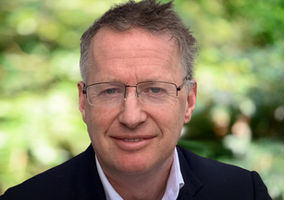Politicians should take the charity sector more seriously with some “outright hostile towards civil society”, the chief executive of New Philanthropy Capital (NPC) has said.
Dan Corry predicted that charities, civil society and philanthropy would not feature prominently in major political parties' manifesto ahead of the next general election.
“I'd be surprised if there's more than a paragraph or two about charities in anyone's manifesto,” he told the NPC Ignites Conference yesterday.
Corry said that charities go unmentioned in political debates on the issues they work on and that sidelining the sector in such a way was a mistake.
“Some of this may be ideological on both sides […] Some doubt whether civil society can deliver, while others are outright hostile towards civil society,” he said.
“Having a strong and lively civil society, with charities everywhere, doing all sorts of things, is surely at the heart of healthy democracy.”
Other speakers at the event discussed how charities can campaign effectively while avoiding party politics.
Government approach to charities is ‘not homogeneous’
In a panel on the role of charities in politics and policy, the Joseph Rowntree Foundation CEO Paul Kissack said charities can be loud, and even “berate” government policy, while respectfully engaged in policy conversations.
He said his organisation has a “quietly constructive” relationship with government despite disagreeing “on some quite fundamental issues”.
“It's perfectly possible to be both a loud campaigner of the sort that governments and other political parties may not like, as well as being a respectful and engaged part of the policy process behind the scenes.”
He said his experience as a civil servant showed “organisations who would simultaneously be berating the government” on certain policy areas and very publicly in the media but “at the same time having perfectly sensible health and conversations, very respectful conversations that can move certain policies forward”.
Kissack said it was “a no brainer” that charities should be involved in a broad and open policymaking process and that his charity “does not shy away from doing politics” but avoids party politics.
Rebecca Gill, executive director of ROSA, said many women and girls organisations do not have the resources to do influencing, as around 85% are micro organisations.
She added small charities have not always got the “bandwidth” so they follow others, meaning if other larger organisations are cautious, then they may be too.
Emma Haddad, CEO of homelessness charity Mungo’s, said she had observed differences in the charity sector to how the civil service engages, for example between the refugee and homelessness services. She said the sector is “not homogeneous” in this way.
Haddad also noted that as the charity is somewhat reliant on government contracts, she initially approached the role and engaged in a very “polite” way, but has since “been pushing against that”. She said though the charity is still “careful” it finds the government is often receptive.
Sunder Katwala, director of charity think tank British Future, said if charities are bought up it will likely not be in a good context and only at “flashpoint moments”.
Nonetheless, there may be a “change of tone” with the charity sector if there is a new government. Katwala also advised that charities should engage if there is a mission-led government in place.
Related Articles











